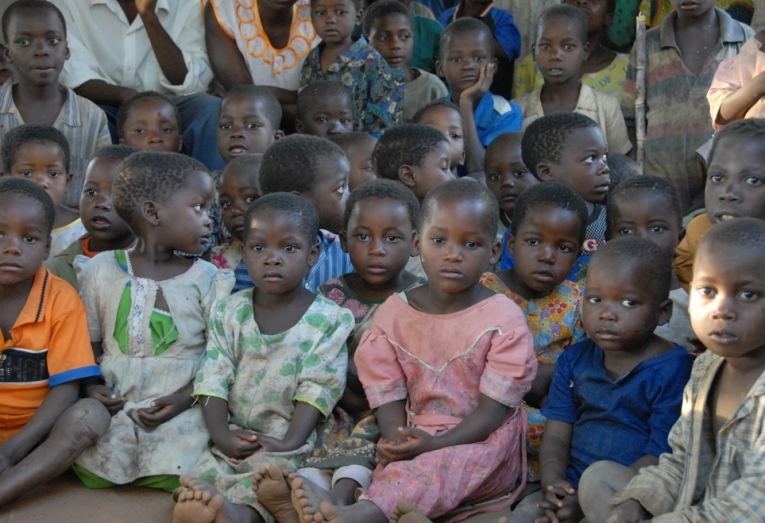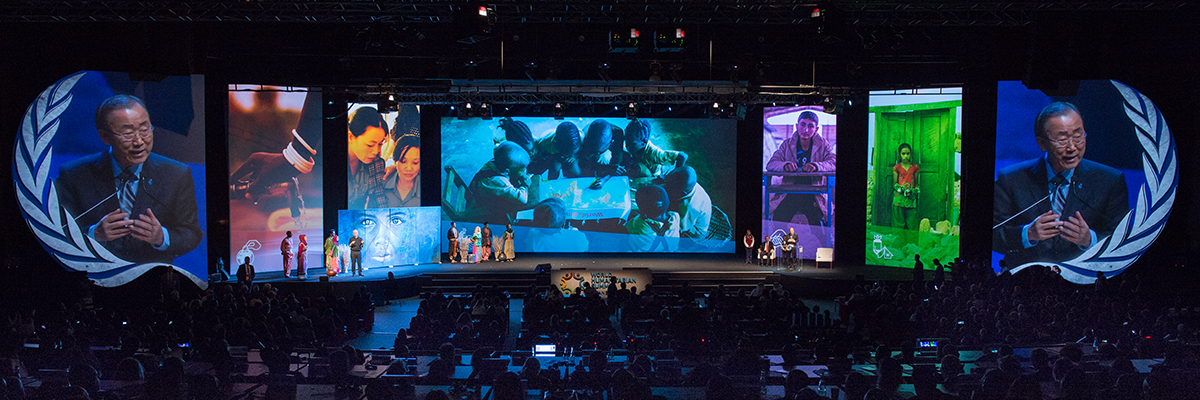Promoting a Culture of Peace with Love and Conscience
The preamble to the Universal Declaration of Human Rights states that « disregard and contempt for human rights have resulted in barbarous acts which have outraged the conscience of humankind, and the advent of a world in which human beings shall enjoy freedom of speech and belief and freedom from fear and want has been proclaimed as the highest aspiration of the common people. » Moreover, article 1 of the Declaration states that « all human beings are born free and equal in dignity and rights and are endowed with reason and conscience and should act towards one another in a spirit of brotherhood. »
The task of the United Nations to save future generations from the scourge of war requires transformation towards a culture of peace, which consists of values, attitudes and behaviours that reflect and inspire social interaction and sharing based on the principles of freedom, justice and democracy, all human rights, tolerance and solidarity, that reject violence and endeavour to prevent conflicts by tackling their root causes to solve problems through dialogue and negotiation and that guarantee the full exercise of all rights and the means to participate fully in the development process of their society.
Origins of a Culture of Peace
The concept of a culture of peace emerged from the International Congress on Peace in the Minds of Men, organized by the United Nations Educational, Scientific and Cultural Organization (UNESCO) in Côte d’Ivoire in July 1989. Since then the promotion of a culture of peace has increasingly been seen as a worthwhile objective of the international community. The evolving concept has inspired activities at so many levels and in so many regions with the full participation of civil society that the culture of peace is gradually taking on the characteristics of a global movement.
Source: Text (abridged) & Image: https://www.un.org/en/observances/conscience Photo: UN Photo/Mohamad Almahady People taking part in activities related to the Peace and Peaceful Coexistence Festival organized by the Communication and Public Information Section of the African Union-United Nations Hybrid Operation in Darfur (UNAMID).
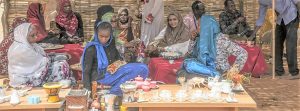
 In today’s 2nd reading, the apostle Paul, writing to the first Christians of Rome (Romans 15:4-9), speaks of:
In today’s 2nd reading, the apostle Paul, writing to the first Christians of Rome (Romans 15:4-9), speaks of: In today’s 1st reading (Micah 5:1-4) the prophet Micah promises, in God’s name, those very precious things.
In today’s 1st reading (Micah 5:1-4) the prophet Micah promises, in God’s name, those very precious things. At this time, many of us start decorating our homes for the festive season.
At this time, many of us start decorating our homes for the festive season.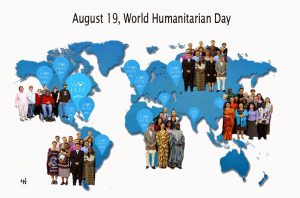 Every year, thousands of men and women the world over put their lives in danger working in Humanitarian causes all over the world. Working in the most poverty and illness stricken third world countries the world over, often in areas of great social violence, these dedicated heroes put their lives on the line, and sometimes lose them in the pursuit of their goals. World Humanitarian Day is when we remember these heroes and their sacrifices.
Every year, thousands of men and women the world over put their lives in danger working in Humanitarian causes all over the world. Working in the most poverty and illness stricken third world countries the world over, often in areas of great social violence, these dedicated heroes put their lives on the line, and sometimes lose them in the pursuit of their goals. World Humanitarian Day is when we remember these heroes and their sacrifices.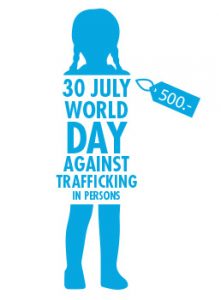
 The United Nations’ International Day for Mine Awareness and Assistance in Mine Action is observed on April 4 each year. This day aims to raise awareness about landmines and progress toward their eradication.
The United Nations’ International Day for Mine Awareness and Assistance in Mine Action is observed on April 4 each year. This day aims to raise awareness about landmines and progress toward their eradication.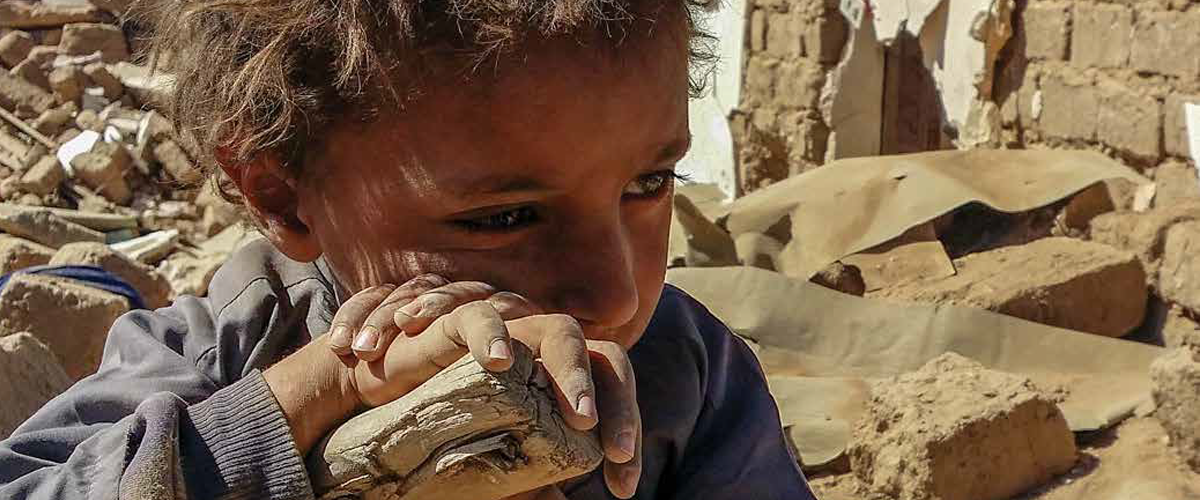 Around the world, conflict is exacting a massive toll on people’s lives. Trapped in wars that are not of their making, millions of civilians are forced to hide or run for their lives. Children are taken out of school, families are displaced from their homes, and communities are torn apart, while the world is not doing enough to stop their suffering. At the same time, health and aid workers – who risk their lives to care for people affected by violence – are increasingly being targeted.
Around the world, conflict is exacting a massive toll on people’s lives. Trapped in wars that are not of their making, millions of civilians are forced to hide or run for their lives. Children are taken out of school, families are displaced from their homes, and communities are torn apart, while the world is not doing enough to stop their suffering. At the same time, health and aid workers – who risk their lives to care for people affected by violence – are increasingly being targeted.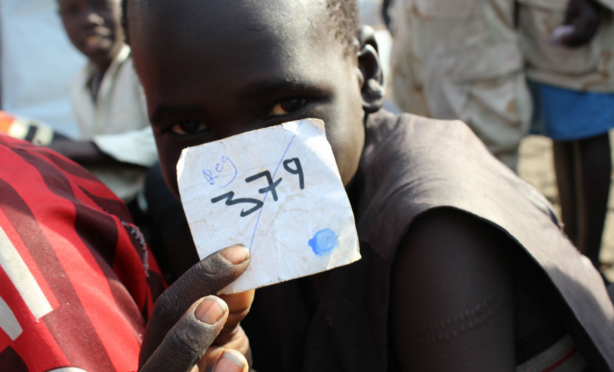 world. “Again this year, the multiplication of conflicts and the brutality of tactics of war have made children extremely vulnerable to recruitment and use,” said Leila Zerrougui, the Special Representative of the Secretary-General for Children and Armed Conflict.
world. “Again this year, the multiplication of conflicts and the brutality of tactics of war have made children extremely vulnerable to recruitment and use,” said Leila Zerrougui, the Special Representative of the Secretary-General for Children and Armed Conflict.